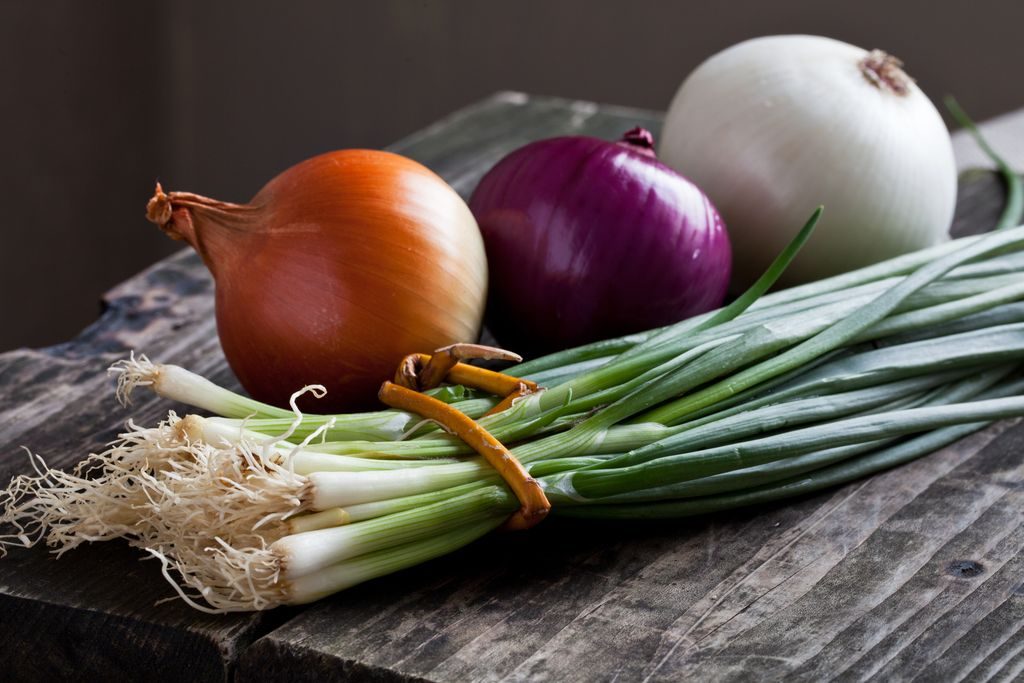Onions are an essential ingredient in cooking, and they are one of the words most used ingredient. There’re a few different varieties that vary in shape, taste and size, from white to red. They can be eaten both cooked and raw.
Fresh onions are used as a base ingredient in soups, stocks, gravy and sauces. You can also buy pickled onions, dried in granule or powdered form.
You can also find onion chutney and marmalade!
Types of onions

- Yellow onions – Have pale golden skin and white flesh and they have a powerful taste. they are most commonly used in cooking but can be eaten raw.
- Red onions – Have a milder taste than yellow onions. They have shiny purple skin and white flesh. they can be used in cooking and eaten raw.
- Shallots – Are much smaller than onions and they have a weak flavour. They are commonly used in French cooking.
- Spring onions – Are young onions pulled before they have fully matured, they have long green leaves. They have such a mild flavour they are quite often eaten raw
Most people dread cutting onions for the reason that when chopped, they have a tendency to make even the toughest of us get all teary eyed. When an onion is cut it releases sulphur and synthase into the air which combines together to make syn-Propanethial S-oxide. When this chemical comes into contact with our eyes can lead to irritation.
One of the best ways to combat this is to simply uses a sharp knife. Not only does this make the chopping process faster but it minimises the damage to the onion, thus minimising the release of that tear-jerking chemical!
Onion nutrition
Onions are packed with nutrients, vitamins and minerals! They have high levels of vitamin C, sulphuric compounds, flavonoids and phytochemicals. Some levels of calcium, iron, potassium, protein and Dietary Fiber. They contain no fats and they are low in sodium.
There are usually about 40 calories per 100 grams of onions.
Some people and allergic to onions. Some symptoms include; itching in the mouth, hives, facial swelling, trouble breathing abdominal pain, dizziness, lightheadedness or fainting. In some cases, some people can have anaphylaxis. This can cause life-threatening. If you think you are allergic to onions you should see a doctor
